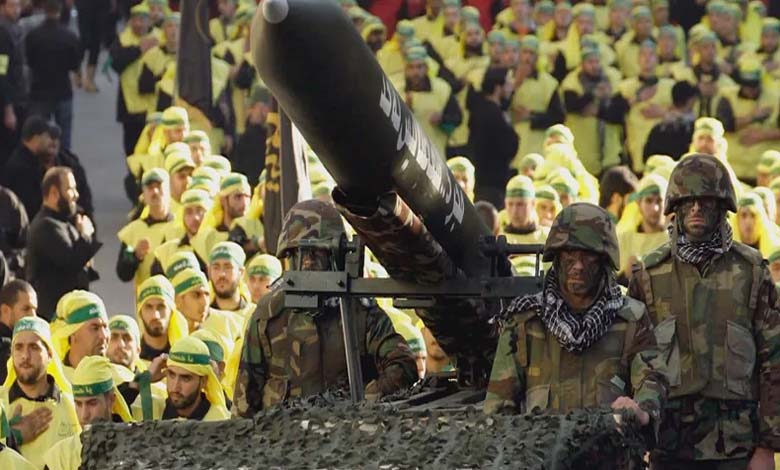Hezbollah Faces a Silent Collapse: Missing Leadership, Besieged Weapons

A flag is not enough when weapons fall. Lebanon’s Hezbollah is facing a deadly isolation, exposing the fragility of its entire project.
Following the death of its Secretary General, Hassan Nasrallah, in an Israeli airstrike last year, Hezbollah finds itself cornered — confronted by questions that weapons can no longer answer.
-
U.S. Patience Wears Thin as Hezbollah Disarmament Stalls
-
Taëf and Weapons Control: Salam Stands for State Restoration, Hezbollah Holds Its Ground
In this context, The New York Times, in an analysis that “the power of Hezbollah, backed by Iran, has declined since Nasrallah’s death,” noting that “after decades of building a strong state within the state, the party now faces an uncertain future.”
With the leadership absent, the party’s decision-making structure has collapsed. Meanwhile, precision strikes have depleted much of its advanced weapons and long-range missile arsenal.
Lebanese political commentator Mustapha Fahs told the New York Times: “Hezbollah used to be two things: Hassan Nasrallah and the weapons. Now, in one of its weakest moments, Hezbollah is struggling to hold on to the weapons that define its identity.”
-
Hezbollah resists internal and external pressure to disarm
-
After a Defeat… Hezbollah Now Ties the Decision to Go to War to the Lebanese State
Mounting pressure
The newspaper added that Hezbollah is under increasing pressure from the Lebanese government and its financial backers to surrender its remaining arsenal, after a 13-month war with Israel left the organization in ruins.
Although Hezbollah has so far resisted disarmament, it’s unclear how long it can maintain this position — especially as Washington is pushing for a short timeline to dismantle the group’s weapons.
U.S. envoy Thomas Barak has visited Lebanon repeatedly in recent months to press for Hezbollah’s disarmament.
-
Israel Warns Naim Qassem: There Will Be No Hezbollah in That Case
-
Israel strikes Hamas, Hezbollah, and Houthi “weapons supply line” in Iran… Who is Behnam Shahriari?
Hezbollah’s remaining arsenal
The exact size of Hezbollah’s remaining weapons cache is unknown. Israel claims it continues to destroy arms depots, while the Lebanese army has seized some weapons.
The ceasefire agreement reached last November requires Hezbollah to withdraw from an 18-mile-wide zone between the Litani River and the Israeli border. However, according to the New York Times, the group’s arsenal stretches well beyond that area.
Under the deal, the Lebanese government must prevent “non-state actors” from rearming.
-
Lebanon Dismantles Hezbollah Network with Israeli Support
-
Hezbollah’s Footprints in the Heart of Sanaa: Ṣarif Explosion Exposes Iran’s Missile Network
Israel still occupies five positions along the Lebanese border and has established a buffer zone a few miles deep in many areas — although it was supposed to withdraw from these areas under the ceasefire terms.
Hezbollah’s new Secretary General, Naim Qassem, has vowed the party will keep its weapons “as long as Israel continues to attack Lebanon and occupy its territory.”
In a recent speech, he said: “They ask us why we need missiles? Well, how are we supposed to face Israel if it attacks us? Should we just abandon our means of defense?”
-
Hezbollah courts Trump with a language of interests: from the Great Satan to investment opportunities
-
Religious Chant Leader Accused of Spying for Israel and Bringing Down Hezbollah Officials
A paper tiger
Hezbollah has long dominated Lebanon’s south and its Shiite base, stretching from the southern suburbs of Beirut to the Israeli border.
According to the New York Times, Hezbollah was once considered “the strongest element of what’s known as the Iranian ‘axis of resistance’ — a network of proxy arms across the Middle East aimed at countering Israel and the West.”
But in recent conflicts with Israel, that alliance “proved to be nothing more than a paper tiger,” the paper writes.
-
Disarming Hezbollah is closer than Ever
-
Hezbollah’s Violations Rekindle Tensions at the Syrian-Lebanese Border
When Israel invaded Lebanon last fall to stop Hezbollah’s cross-border attacks, Iran did not intervene.
Israel subsequently killed key political and military leaders who had founded Hezbollah in the 1980s and 1990s — targeting them in their hideouts and striking thousands of fighters using booby-trapped communication devices.
Signs of weakness
Since the ceasefire, signs of Hezbollah’s weakness have multiplied. Most of the group’s thousands of fighters have withdrawn from the south — a major concession long sought by both Israel and the Lebanese government.
-
Dismantling of Most of Hezbollah’s Military Sites in Lebanon: Flexibility or Manoeuvre?
-
The future of Hezbollah’s weapons is open for discussion: Under conditions
The New York Times notes that the timing of Hezbollah’s disarmament is one of the most sensitive aspects of Lebanon’s post-war future.
The Lebanese government, meeting this Tuesday to discuss Hezbollah’s weapons and possible implementation mechanisms, must restrain the group to secure Western funding — without sparking internal conflict.
Hezbollah has long been under Western sanctions due to its designation as a terrorist organization.
-
Hassan Bdeir : Hezbollah Leader Targeted by Israeli Airstrike in Beirut
-
Mossad Reveals How the Pager Explosions Shifted the Course of the War against Hezbollah
After 50 years of intermittent wars, the country suffers from severe economic contraction, a banking crisis, and a failing power grid.
The World Bank estimates Lebanon needs $11 billion to rebuild war-related damage.
Disillusioned Hezbollah supporters are now demanding to know when they will receive reconstruction aid to rebuild their homes and businesses.
The government hopes growing frustration in the south will push Hezbollah to finally give up its arms.












